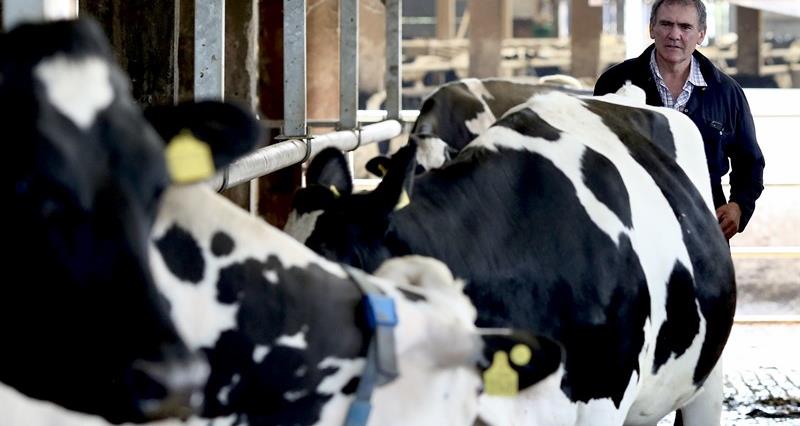In its response to the Welsh Government consultation A Refreshed TB Eradication Programme, NFU Cymru has stressed that the only fair way to value cattle compulsorily slaughtered by Welsh Government as a result of bovine TB is on the basis of their individual merits.
The union states that its members are fundamentally opposed to the introduction of any system based on table valuations, highlighting that such proposals have significant shortcomings.
Not fair to the farmer or to government
NFU Cymru President Aled Jones explained: “A tabular valuation system is not fair to the farmer or to government, because a system based on averages is likely to create as many instances of over valuation as undervaluation. A table valuation system takes no account of many important factors relating to the individual characteristics of the animal, for example size, weight, quality, stage of pregnancy, milk yield, genetic merit or animal health status.
“We often hear from Welsh Government of the need for individual farming business to increase their resilience, improve productivity, business performance and the use of better performing genetic stock. Moving forward with a tabular valuation system will penalise the very farming businesses that Welsh Government is purporting to champion.
Payment compensation
“It is also important to note that the payment of compensation for a TB reactor does not in any way cover the consequential losses (the loss of production, inability to market produce, increased housing and feeding costs etc.) sustained by the business as a result of a TB breakdown.
“Welsh Government, in its consultation, suggests that its proposals are a result of an overspend of its TB budget. We are absolutely clear that the only way to reduce any overspend that government may have is to ensure that the disease is controlled quickly and effectively so that the disease has the smallest possible impact on the national herd. The fewer animals that need to be slaughtered as a result of bovine TB, the lower the compensation bill and the lower the cost for both government and industry.
“From our consultation meetings and feedback as part of this consultation exercise there is no doubt that the anger and frustration within the industry at the repeated failure of successive governments to implement a comprehensive TB eradication strategy in Wales is as great as it has ever been. This has been further compounded by the Welsh Government 2021 Programme for Government that in relation to bovine TB has stated that it will ‘Forbid the culling of badgers to control the spread of TB in cattle’. This statement from Welsh Government suggests that, regardless of science and evidence, this government has made a political decision to take away part of an eradication programme that has been used by every country that has implemented a successful TB eradication programme.”
Changes to current testing regime
The consultation document makes a number of proposals for changes to current policies, including changes to the current testing regime in the different TB regions of Wales.
NFU Cymru President Aled Jones said: “Cattle keepers throughout Wales farm under some of the most stringent and restrictive cattle movement and testing requirements in the world. This consultation proposes a number of further changes that, if introduced, will have significant consequences for cattle keepers. For example, increasing the sensitivity of the TB testing regime will see more animals slaughtered and an increasing proportion will not have been exposed to the disease.
“However, NFU Cymru recognises that as our understanding of the disease picture in Wales evolves and the range of tests and diagnostics that are available to tackle this disease increase, then it is only right that consideration is given to changes to the current testing regime to reduce the risk of an animal testing clear for the disease later found to be harbouring infection.”
Three conditions
Given the potential consequences for cattle keepers of any changes to the current testing requirements, NFU Cymru has set out three conditions that must be undertaken prior to any of the testing proposals being implemented, these being:-
- A comprehensive regulatory impact assessment and cost benefit analysis of the proposed changes on the cattle industry.
- An opportunity for industry to consider further once these assessments have been completed.
- The current compensation arrangements being maintained.
NFU Cymru President Aled Jones added: “Our members remain deeply frustrated that the ability to tackle and get on top of this disease has, for so many years, been hampered by the fact that Welsh Government policy measures see politics, all too often, override the science. Welsh Government appears to be unique in its thinking that this disease can be eradicated without proactively dealing with diseased animals in both cattle and wildlife populations.
“Bovine TB continues to be one of the biggest challenges to the industry realising its ambitions in relation to productivity and profitability. It can have a significant impact on the mental health and wellbeing of farming families, vets and all those who work in the sector. NFU Cymru will continue to work tirelessly for a comprehensive TB eradication strategy for Wales, a strategy to give hope that we can rid this disease from our countryside once and for all.”
Read NFU Cymru's response to the consultation
